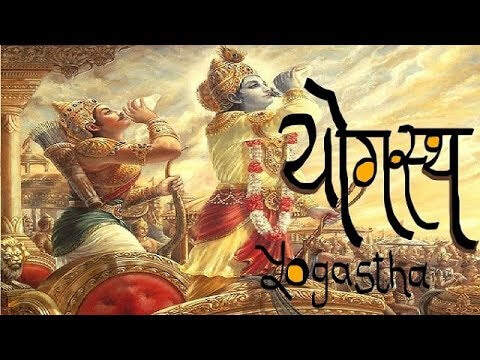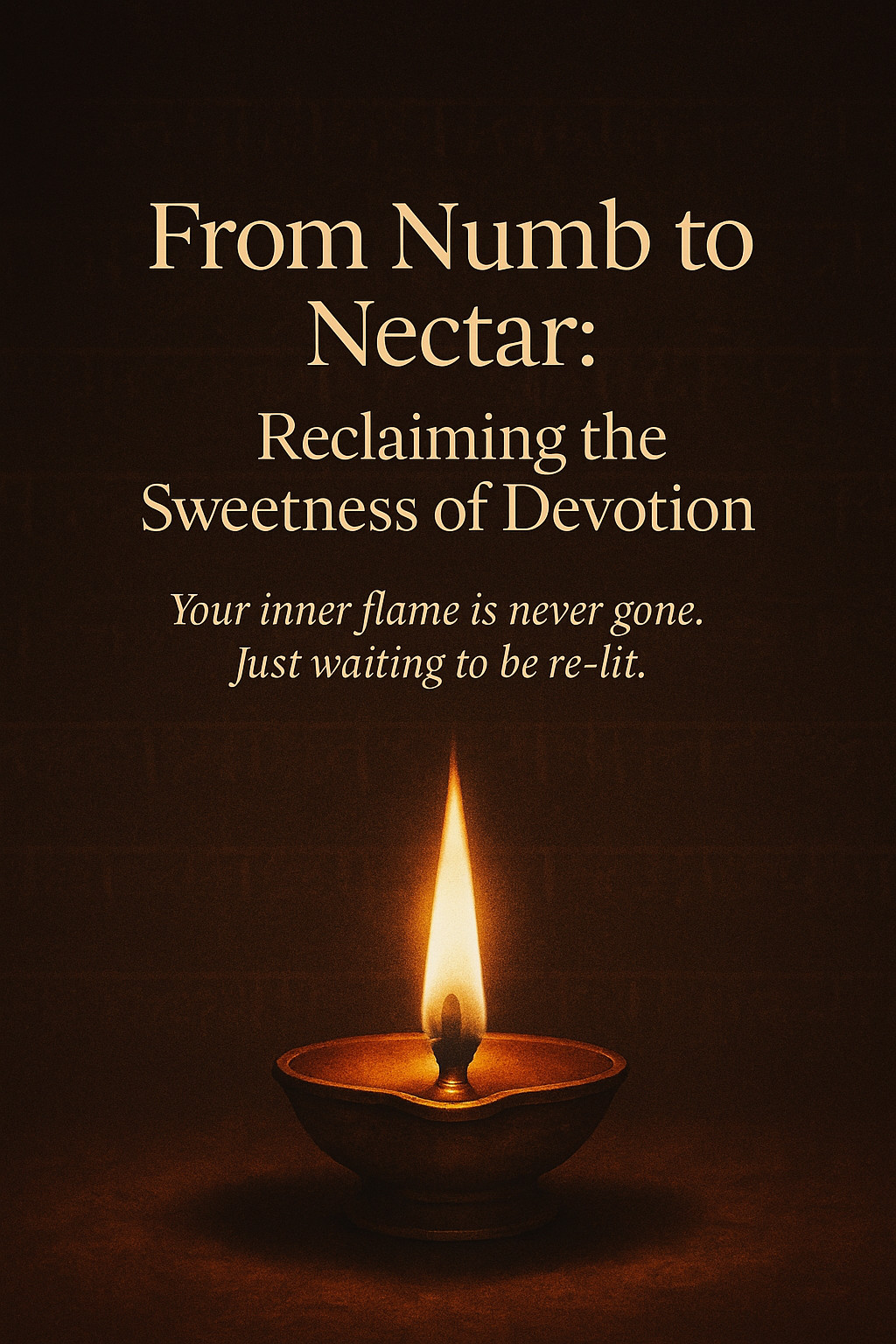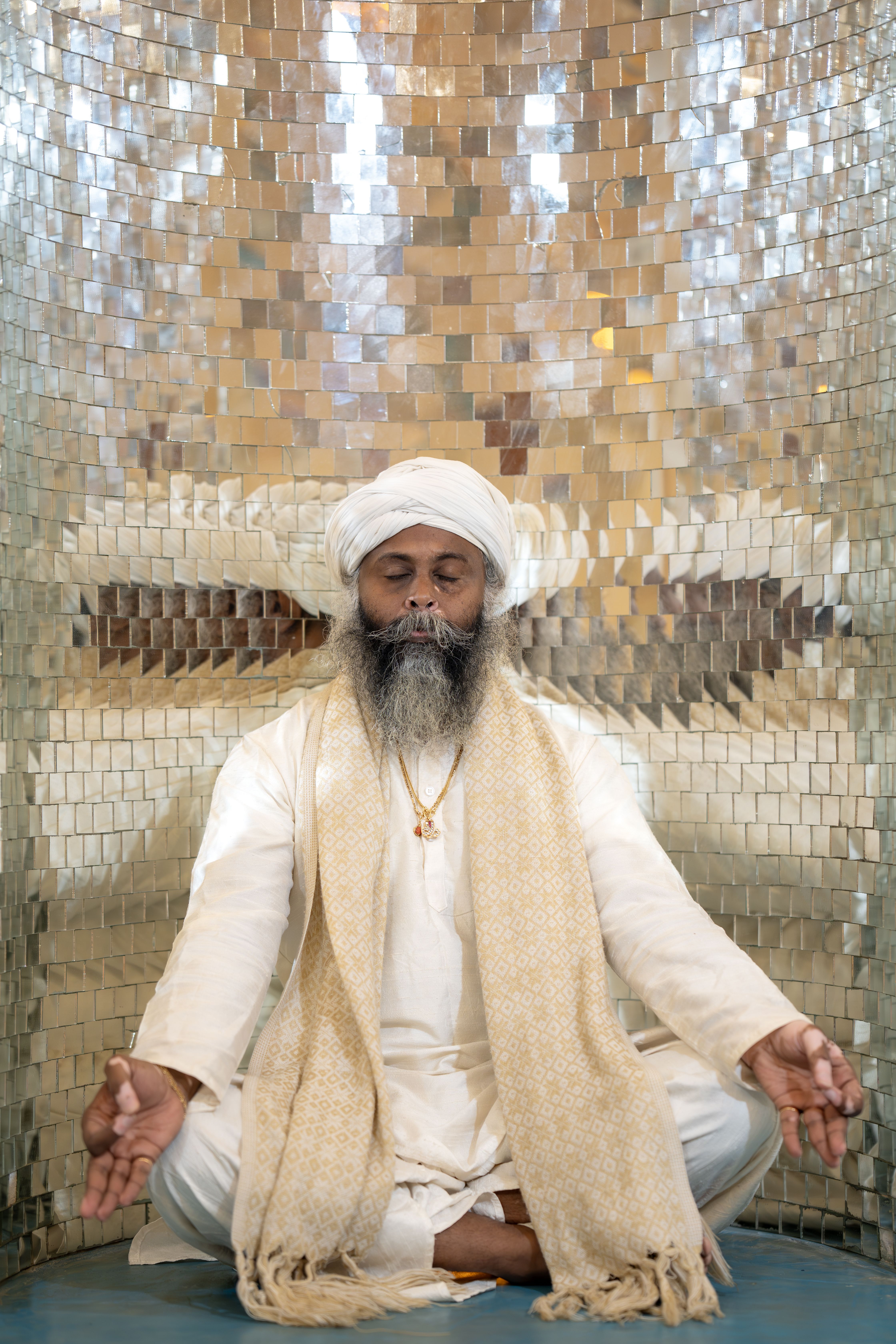One of the most profound teachings from the Bhagavad Gita is encapsulated in the verse “Yogasthah Kuru Karmani,” which translates to “Established in yoga, perform your actions.” This ancient wisdom provides a universal principle that can be applied to every aspect of life—whether in our career, relationships, or business ventures. But what does it truly mean, and how can we integrate this principle into our modern lives?
The Essence of "Yogasthah Kuru Karmani"

At its core, "Yogasthah Kuru Karmani" invites us to act from a place of inner centeredness and presence. It teaches us to perform our duties and actions with complete focus, without attachment to the outcomes. The key is to be anchored in a state of inner equilibrium (yoga) while engaging fully in our tasks (karma). This mindset shifts the way we approach our responsibilities, goals, and even challenges, allowing us to navigate life with greater peace, clarity, and effectiveness.

Applying the Principle to Life
In our day-to-day lives, it's easy to become consumed by stress, worry, or the pressure to achieve certain results. We often tie our sense of self-worth or happiness to external accomplishments. The teaching of "Yogasthah Kuru Karmani" reminds us to stay connected to our inner peace, even when we're busy or under pressure. Instead of being driven by anxiety or fear of failure, we can stay rooted in calm and trust, knowing that the process itself is just as important as the result.
This shift in mindset allows us to act with greater integrity, creativity, and resilience. Whether we're facing personal challenges or navigating difficult decisions, staying grounded in our inner self gives us the strength and clarity to move forward with grace.
In Career and Business
In the realm of career and business, "Yogasthah Kuru Karmani" is a powerful guide. The corporate world often emphasizes outcomes, success metrics, and tangible achievements. While striving for results is important, becoming overly attached to them can lead to burnout, stress, and even ethical compromises. This principle encourages us to focus on performing our duties with excellence, while letting go of the obsession with external validation or reward.
When we act from a place of balance and inner alignment, we’re more likely to make sound decisions, build authentic relationships, and maintain a sense of purpose in our work. The quality of our efforts becomes the true measure of success, not just the material outcomes. This also helps cultivate a more mindful approach to leadership and entrepreneurship, where the focus is on long-term growth, sustainability, and contribution, rather than short-term gains.
In Love and Relationships
"Yogasthah Kuru Karmani" also holds great significance in the context of love and relationships. Many of us enter relationships with expectations—expecting our partner to behave a certain way, fulfill our needs, or create happiness for us. However, this attachment to outcomes can lead to disappointment or frustration when things don’t go as planned.
This principle reminds us to bring our best selves into a relationship while letting go of the need to control or predict how it will unfold. Being “established in yoga” means being grounded in self-love, balance, and inner fulfillment. When we bring this sense of completeness into our relationships, we are able to love more freely, without attachment or dependence. We can give and receive love without being driven by expectations, which leads to deeper, more authentic connections.
A Path to Inner Freedom
The beauty of "Yogasthah Kuru Karmani" lies in its ability to free us from the chains of external validation. When we detach from the outcome and focus on the quality of our actions, we liberate ourselves from the constant need for approval, recognition, or control. This creates space for us to live more fully, with passion and purpose, while maintaining an inner peace that is not swayed by the ups and downs of life.
In conclusion, "Yogasthah Kuru Karmani" offers timeless wisdom that can transform every area of our lives. Whether we are navigating the complexities of our careers, building a business, or deepening our relationships, this principle teaches us to act from a place of inner stability and presence. By staying rooted in our inner self while performing our actions, we can move through life with greater purpose, grace, and resilience—creating not just success, but true fulfillment
The reality of deep relationships, whether in marriage, family, or friendship, is that they inevitably reveal the flaws and imperfections of those involved. Initial admiration often fades as stress and hardship spotlight these imperfections, challenging the bonds between people. Many relationships struggle to withstand this truth because love is commonly mistaken for emotion, rather than the conscious choice it truly is.
Real love demands a commitment to another person's imperfect humanity, requiring patience, understanding, and the willingness to face uncomfortable truths together. It’s about choosing to see the person beyond their flaws, recognizing their inherent worth despite the messiness of life. This form of love involves standing by someone even in their darkest moments, striving to nurture the relationship day by day despite challenges.
Ultimately, love is a reflection of our own humanity, tolerating the imperfections in others, which mirrors our own struggles. It teaches us empathy and patience for both others and ourselves, breaking the myth that one must be perfect to be loved. The beauty of imperfect love lies in its authenticity, as it acknowledges the reality of life and emphasizes the choice to remain committed, navigating each challenge as a stronger, unified bond.
Read more...The blog post delves into the concept of masculine energy as it relates to love and commitment within marriage. It argues that a truly masculine man, defined by maturity, integrity, and self-awareness, does not randomly fall in love with another woman outside his marriage. Instead, such men are aligned with their core values and commitments, recognizing that love is an intentional choice that grows and evolves over time.
The discussion emphasizes the importance of emotional maturity and self-awareness in maintaining a strong, committed relationship. For masculine men, setting and respecting emotional boundaries within marriage is crucial, as is addressing any personal challenges or unmet needs directly with their partner rather than seeking fulfillment elsewhere. This approach to love and commitment ensures that the foundation of their marriage remains strong, based on mutual respect, trust, and open communication.
Ultimately, the article highlights how masculine men view love not as a random occurrence but as a series of deliberate decisions made every day. They understand that sustaining a marriage requires focus, effort, and intentionality, choosing to nurture their relationship with their spouse rather than being swayed by fleeting attractions or temptations. Such a perspective ensures that their love remains steadfast, cultivated with purpose and dedication.
Read more..."Love is the sum of our choices, the strength of our commitments, the ties that bind us together." This quote by Emily Giffin beautifully encapsulates the essence of love as something deeper than fleeting emotions or romanticized ideals. It suggests that love, in its truest form, is built upon conscious decisions, unshakable commitment, and the bonds we nurture over time. Rather than being merely a feeling, love is portrayed here as an ongoing practice—a continuous journey shaped by the choices we make every day.
Love is the Sum of Our Choices
The idea that love is a result of our choices speaks to the responsibility we hold in how we cultivate and maintain our relationships. Each day, we are presented with countless opportunities to show love, through words, actions, or even silence. Choosing patience over frustration, kindness over criticism, and understanding over judgment are all acts of love.
These choices aren’t always easy. Relationships can be challenging, with moments of conflict, vulnerability, and imperfection. Yet, it is in those moments that our choices matter the most. Love is not just something that happens to us; it is something we actively create through the decisions we make about how we treat others and ourselves.
When we choose to be present, to listen, and to offer support, we contribute to the sum of love in our lives. On the other hand, neglect, indifference, or selfishness can diminish that love. The power of choice is in our hands, and it is these choices that define the depth and quality of our relationships.
The Strength of Our Commitments
At the heart of love is commitment. Love flourishes when we dedicate ourselves to nurturing it, regardless of the challenges that come our way. Commitment gives love its strength, anchoring it in something more lasting than passion or affection, which can wax and wane over time.
Commitment is often seen as a promise—whether spoken or unspoken—that we will stand by someone through the ups and downs. It’s about showing up consistently, even when it’s difficult or inconvenient. It’s choosing to stay when leaving would be easier. This kind of steadfastness requires resilience and trust, but it is what makes love endure.
In relationships, whether romantic, familial, or platonic, commitment transforms love from a feeling into a shared journey. It says, "I am here for you, not just in moments of joy, but in times of hardship too." It’s the strength of this commitment that builds trust, fosters growth, and provides security, creating a bond that can withstand the inevitable storms of life.
The Ties That Bind Us Together
Love is also about connection. The ties that bind us together are the shared experiences, memories, and moments of vulnerability that create a deep sense of belonging. These ties are formed through time, effort, and the mutual willingness to be open and authentic with one another.
In any meaningful relationship, the connection deepens as we allow ourselves to be truly seen and understood. When we show our true selves—the good, the bad, and the imperfect—we invite others to connect with us on a deeper level. Love thrives in this space of vulnerability, where we feel safe enough to let down our walls and be accepted for who we really are.
The ties of love aren’t just about emotional connection; they are also about shared values, goals, and experiences that bring us closer to one another. Whether it’s raising a family together, supporting each other’s dreams, or simply sharing a life’s journey, these shared aspects of life create the invisible threads that weave our lives together.
Love as an Ongoing Practice
Emily Giffin’s quote reminds us that love is not static; it is an ongoing practice. It is something we must nurture and cultivate over time. The choices we make, the commitments we uphold, and the connections we build all contribute to the richness of love in our lives.
At times, love will require patience, forgiveness, and compromise. It will call on us to choose understanding over pride, and compassion over resentment. Love, in its purest form, is an ever-evolving process that requires continual effort and intention.
In the end, love is not something that happens to us passively. It is the sum of everything we do, and the quality of our relationships is determined by the level of care, thought, and energy we invest in them.
Conclusion
Emily Giffin’s words offer a powerful reminder of what love truly is. It is the product of our choices, shaped by our willingness to commit and strengthened by the ties we build with others. Love is not simply a feeling; it is a series of actions, decisions, and commitments that reflect the values we hold dear.
In a world that often emphasizes instant gratification and fleeting emotions, Giffin’s quote encourages us to see love as a practice that requires dedication and effort. It challenges us to make love an intentional part of our lives, one choice at a time. The beauty of love lies in its complexity, and when we embrace it as an active force, we can experience its deepest, most fulfilling form.
Karwa Chauth is a significant North Indian festival that celebrates the sacred bond between a husband and wife through fasting, prayer, and devotion. Historically rooted in the protection and longevity of husbands traveling for trade or war, the festival's essence transcends time, symbolizing unwavering dedication and mutual respect. Women partake in a strict day-long fast, which they break upon sighting the moon, reflecting a deep sense of care and sacrifice that defines marital bonds.
The rituals of Karwa Chauth start with a pre-dawn meal called Sargi, followed by a day of fasting, dressing in traditional attire, and participating in evening prayers. Women listen to legends like that of Queen Veeravati, whose devotion restored life to her husband, underscoring the power of love and faith. As the moon rises, the fast is broken with the husband offering water and food, marking the mutual bond of love and care.
In modern times, Karwa Chauth has evolved to celebrate love and equality, with some men joining in the fast as a symbol of shared responsibility. While debates around gender roles exist, many view the festival as a personal expression of love and devotion. Through its portrayal in popular culture and Bollywood, Karwa Chauth continues to capture the romantic imagination, blending tradition with contemporary nuances and spiritual fulfillment.
Read more...
